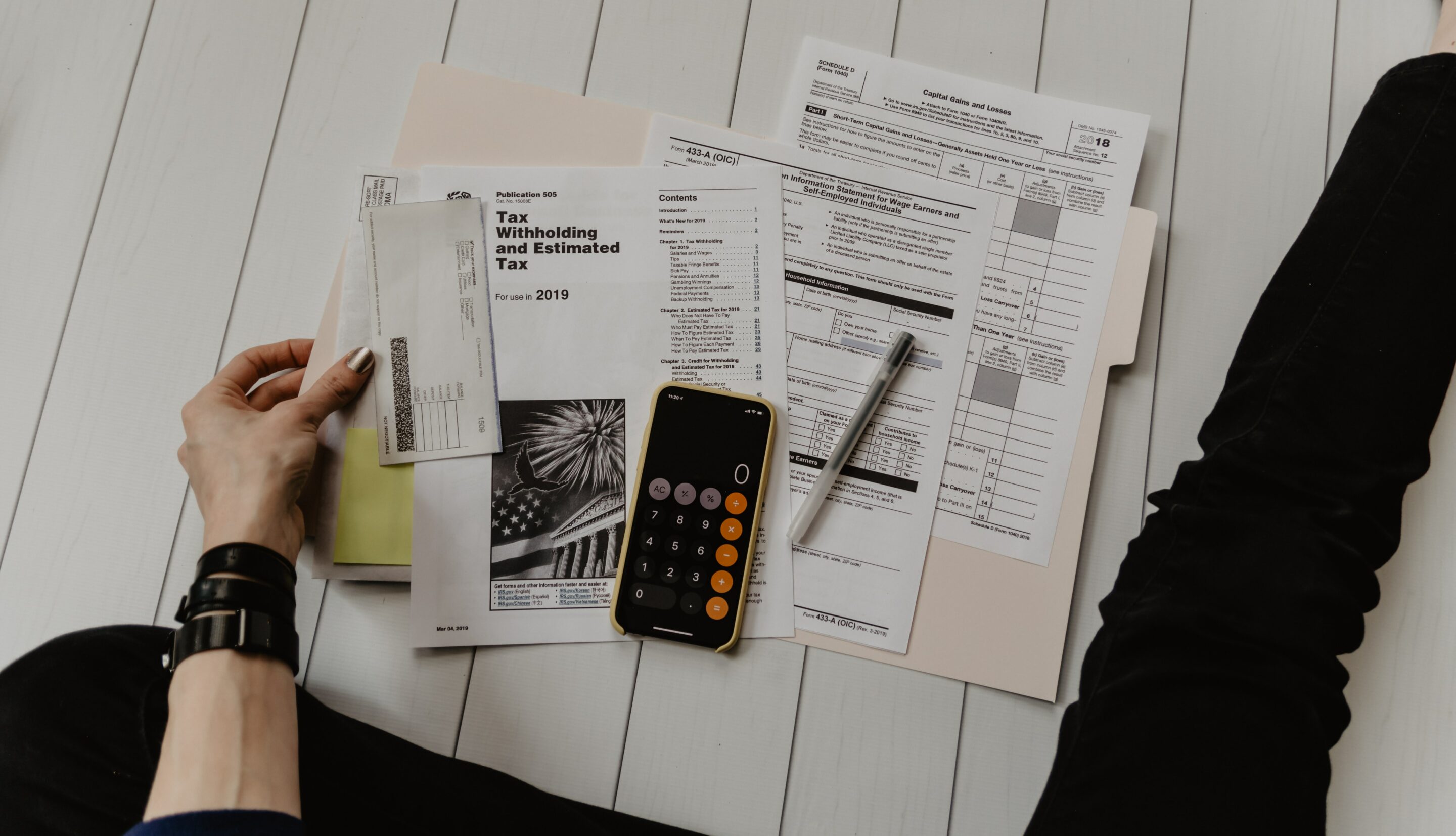The end of the year is just around the corner – are you prepping your business with these tax considerations for photographers in mind? As a photographer and a self-employed business owner you have a lot of expenses, and most of those are tax deductible. Everything from cameras, lights, memory cards and software – almost anything you need to run your business can be written off. Follow these tax tips to help keep your tax prep work less of a headache and lower your bill from the IRS at the end of the year.

Consider Hiring a CPA
Things can get complicated when you are filing both your personal and business taxes. Hiring a CPA who specializes in working with small business owners like photographers can help ensure you are filing your taxes timely and correctly. This will help you lessen the likelihood that you will get audited if you have someone filing for you that understands the forms and what information is needed to file your business taxes. Having a CPA is also great when you have tax related questions that come up throughout the year. While does come with an expense, you can typically write this expense off each year on your taxes.
Mileage
Please, please, please – if you’re not already tracking your mileage and deducting it at tax time please start doing so right now! I get it, with the detailed record keeping required by the IRS, you might be thinking that tracking a mile here and there is more effort than it’s worth. However, the current IRS mileage rate is 62.5 cents per mile.
Now ask yourself, “How far is my favorite camera shop from my house?” (assuming you have a home office, of course). “How far did I drive for that last shoot?” You might not realize it, but those miles add up fast, and your mileage deduction will likely be one of your largest writeoffs at the end of the year.
Equipment
A photographer needs a lot of equipment: cameras, lenses, tripods, light meters, lights and countless other minutia – all of which is a tax write-off.
There are three ways to deduct your photography equipment: depreciation, a Section 179 deduction or a new IRS regulation called de minimis safe harbor that permits you to deduct any equipment you use in your business that costs $500 or less in a single year.
There are advantages to each of these, but since most business owners want to deduct as much as possible as soon as possible, you’ll probably want to opt for the Section 179 deduction of the de minimis safe harbor deduction. A tax professional can help you decide which makes the most sense, but the important thing is to keep track of every penny you spend on equipment.
One word of caution: Photography equipment falls within a special tax category called “listed property.” The IRS fears that taxpayers might use listed property items for personal reasons but claim business deductions for them. For this reason, you’re required to document your business use of listed property. You can satisfy this requirement by keeping a logbook or similar record showing when and how the property is used.

Education
Not many photographers know that you can also add the costs for education/training to your deductions. Yes – the expenses for your mentorships/coaching and education that help you learn your craft and grow in your business can also be a tax write off. You may even be able to include the lodging/travel expenses you had if you took a workshop somewhere that required traveling in your deductions as well.
A Home Office is a Must
A tax deductible home office is a commonly missed deduction that has tremendous benefits at tax time.
But why is this deduction so valuable? Not only can you deduct a portion of your mortgage or rent, but you can also deduct portions of your utilities, homeowner’s or renter’s insurance, home maintenance expenses that benefit your entire home, including your home office (for example, roof and furnace repairs or exterior painting); condominium association fees, snow removal expenses and security system costs.
Although driving from home is usually considered commuting, and is therefore not deductible as a business expense, having a tax deductible home office allows you to avoid the IRS’ commuting rule (since home is your office, you’re not commuting) and deduct all of the business miles you drive for your photography business – even when you leave from home.
You can take the home office deduction only if you regularly use part of your home exclusively for business. “Exclusive use” means that you use a portion of your home only for business. If you use part of your home as your business office and also use that part for personal purposes, you cannot meet the test of exclusive use and cannot take the home office deduction. You don’t need to devote an entire room in your home to your business. But some part of the room must be used exclusively for business.
Managing Reports and Records
Keeping track of all these expenses and numbers can be daunting. To make things easier, in Iris you can export your invoice data in a spread sheet for each tax year.
We love Quickbooks for keeping all of your business accounting in one place! Iris integrates with Quickbooks Online (US and Canada versions).
MileIQ is a great way to keep track of your mileages.





Recent Comments